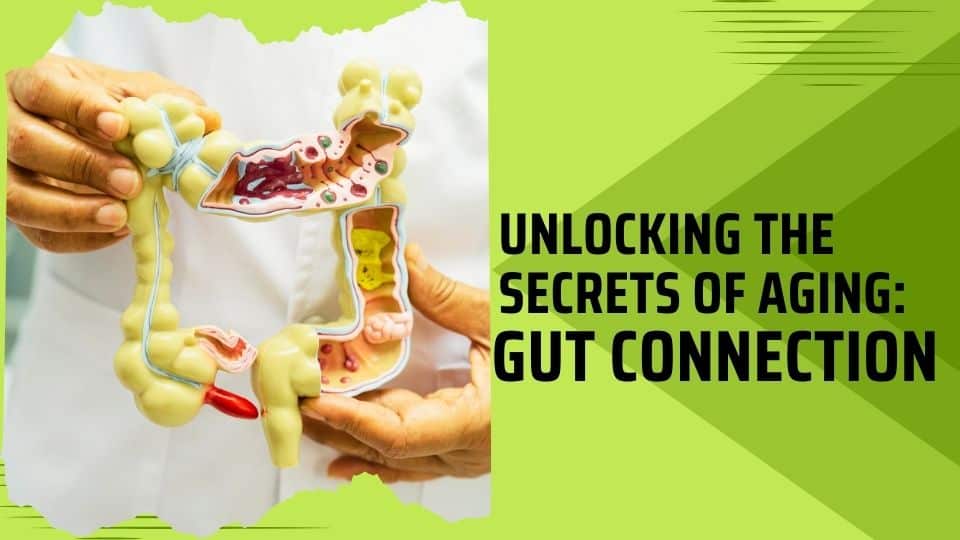Table of Contents
Secrets of Aging! In a groundbreaking study conducted by the esteemed Wistar Institute, Associate Professor Mohamed Abdel-Mohsen, Ph.D., and his team have unveiled a profound link between leaky gut syndrome and accelerated biological aging. Their findings, published in the journal Microbiome under the title “Distinct Intestinal Microbial Signatures Linked to Accelerated Systemic and Intestinal Biological Aging,” shed light on a crucial aspect of human health that has long remained elusive.
Understanding Accelerated Biological Aging
Imagine your body aging faster than the years ticking by on the calendar. This condition is known as accelerated biological aging, and it opens the door to a host of severe health concerns typically associated with older adults. From cancer to heart disease, brain disorders to diminished vaccine efficacy, the ramifications are vast and profound.
Dr. Abdel-Mohsen and his team are on a mission to unravel the mysteries behind this rapid aging process and, more importantly, to develop strategies to slow it down and enhance overall health.
The Gut Microbiome: A Key Player
One of the prime suspects in the aging puzzle is none other than the gut microbiome. This complex ecosystem of bacteria in our intestines is pivotal to our overall health. However, when the delicate balance of this Microbiome is disrupted, it can lead to a phenomenon known as leaky gut syndrome.
Dr. Abdel-Mohsen’s research delves into how this leakage from the gut into the bloodstream can wreak havoc on the immune system, sparking chronic inflammation that accelerates aging.
Unraveling the Connection
To understand this connection better, Dr. Abdel-Mohsen and his colleagues turned their attention to individuals living with chronic HIV infection. This population serves as an excellent model for studying accelerated biological aging due to the potential impact of the virus on aging processes.
The researchers made a significant discovery by analyzing colon, ileum, stool, and blood samples. They found a strong correlation between disrupted gut microbiomes, increased intestinal permeability, and accelerated biological aging.
Location Matters
Interestingly, the researchers observed that the microbiomes of the colon and ileum, but not fecal microbiomes, were closely linked to accelerated aging. This highlights the importance of sampling intestinal tissues to understand the Microbiome’s impact on aging comprehensively.
You can also view this article: Taurine Has Anti-Aging Effect?
Measuring Biological Age
Determining biological age is no easy feat, but Dr. Abdel-Mohsen’s team employed advanced methods like telomere length analysis and epigenetic clocks to get a closer look. These clocks evaluate age based on DNA methylation patterns, providing valuable insights into aging.
The Road Ahead
Dr. Abdel-Mohsen’s work has identified specific bacteria and their by-products as potential aging accelerators. This opens up new avenues for developing strategies to mitigate these effects and enhance the longevity of individuals living with chronic conditions like HIV.
However, the journey is far from over. Dr. Abdel-Mohsen emphasizes the need for further investigation to grasp these findings’ underlying causes and potential impacts fully. Developing strategies to prevent intestinal dysbiosis and leakiness can slow aging and improve overall health.
In conclusion
The study conducted by Dr. Abdel-Mohsen and his team represents a significant step forward in our understanding of accelerated biological aging and its connection to the gut microbiome. By unraveling these mysteries, we pave the way for a healthier and more vibrant future for all.
Glossary:
- Biological Aging: The process of the body deteriorating over time, leading to functional decline and increased vulnerability to diseases.
- Microbiome: The collection of microorganisms, including bacteria, viruses, fungi, and other microbes, that inhabit a particular environment, in this case, the gut.
- Chronic HIV Infection: Persistent HIV infection that lasts more than six months.
- Leaky Gut: A condition where the lining of the intestine becomes damaged, allowing bacteria, toxins, and other harmful substances to leak into the bloodstream.
- Colon: The large intestine, responsible for absorbing water and electrolytes from undigested food, forming feces.
- Ileum: The final section of the small intestine, where absorption of nutrients occurs.
- Telomere Length Analysis: Measurement of the length of telomeres, which are protective caps at the end of chromosomes that shorten with each cell division and are associated with aging.
- Epigenetic Clocks: A method of estimating biological age by analyzing changes in DNA methylation patterns.
- Immune System: The body’s defense mechanism against infections and diseases, comprising various cells, tissues, and organs.
- Chronic Inflammation: Persistent inflammation in the body, which can contribute to various health issues.
- Gut Microbiome Disruption: Imbalance or alteration in the composition and function of microorganisms in the gut.
- DNA: Deoxyribonucleic acid, a molecule that contains the genetic instructions for the development and functioning of living organisms.
Journal Reference:
Shalini Singh, Leila B. Giron, Maliha W. Shaikh, Shivanjali Shankaran, Phillip A. Engen, Zlata R. Bogin, Simona A. Bambi, Aaron R. Goldman, Joao L. L. C. Azevedo, Lorena Orgaz, Nuria de Pedro, Patricia González, Martin Giera, Aswin Verhoeven, Elena Sánchez-López, Ivona Pandrea, Toshitha Kannan, Ceylan E. Tanes, Kyle Bittinger, Alan L. Landay, Michael J. Corley, Ali Keshavarzian, Mohamed Abdel-Mohsen. Distinct intestinal microbial signatures linked to accelerated systemic and intestinal biological aging. Microbiome, 2024; 12 (1) DOI: https://doi.org/10.1186/s40168-024-01758-4
